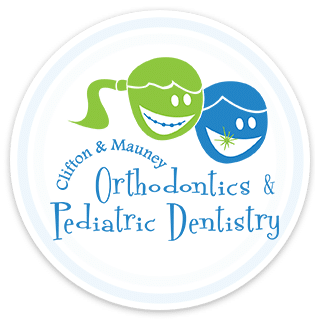Pediatric Dentistry in Chapel Hill, NC
At Clifton & Mauney Orthodontics & Pediatric Dentistry, we want every child to grow up with a beautiful, healthy smile. That’s why we proudly offer comprehensive pediatric dentistry for kids in Chapel Hill, Durham, Hillsborough, and surrounding areas. We provide the best preventive care, education, and treatment for all our patients, including productive appointments for neurotypical children and those with special needs.
Learn more about our approach to pediatric dentistry by requesting an appointment or calling us at 919.933.1007.
What Is Pediatric Dentistry?
Children have different dental and orthodontic needs than adults. Pediatric dentists specialize in providing treatment for children, including infants getting their baby teeth, 6- and 7-year-olds who are losing their first teeth, and teens who may require braces or other treatments.
After 4 years at an accredited dental school, pediatric dentists must complete an additional 2-3 years of education in pediatric dentistry. At Clifton & Mauney, our experienced team has the skills needed to connect with kids and show them that having clean, healthy teeth is cool and fun!
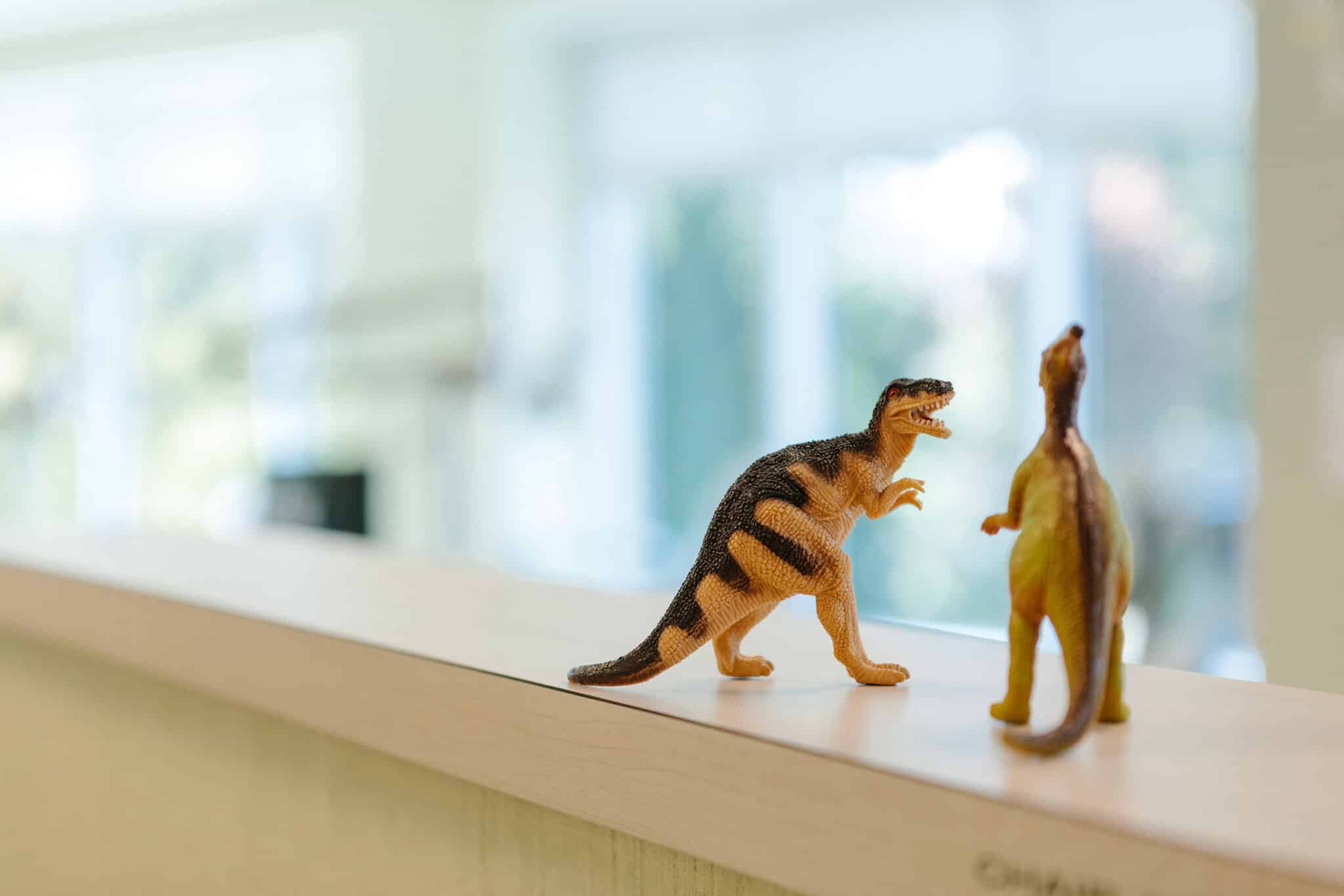
At Clifton & Mauney Orthodontics & Pediatric Dentistry, we promote healthy habits for a lifetime of happy smiles, using:
- Preventive dentistry
- Early intervention treatments
- Educational resources
- The establishment of good dental habits that will last a lifetime!
Contact us today to learn what makes us the top pediatric dentists in Chapel Hill, Durham, and Hillsborough!
Pediatric Dental Care Services
Taking a comprehensive approach to your child’s dental care ensures that we can create a foundation of healthy teeth and good oral habits. We offer a range of treatments for common pediatric dental conditions, including regular dental checkups, preventive sealants, restorative care, early orthodontic intervention, diagnostic x-rays, and more.
Let’s take a deeper look at the specific pediatric dental care services we provide:
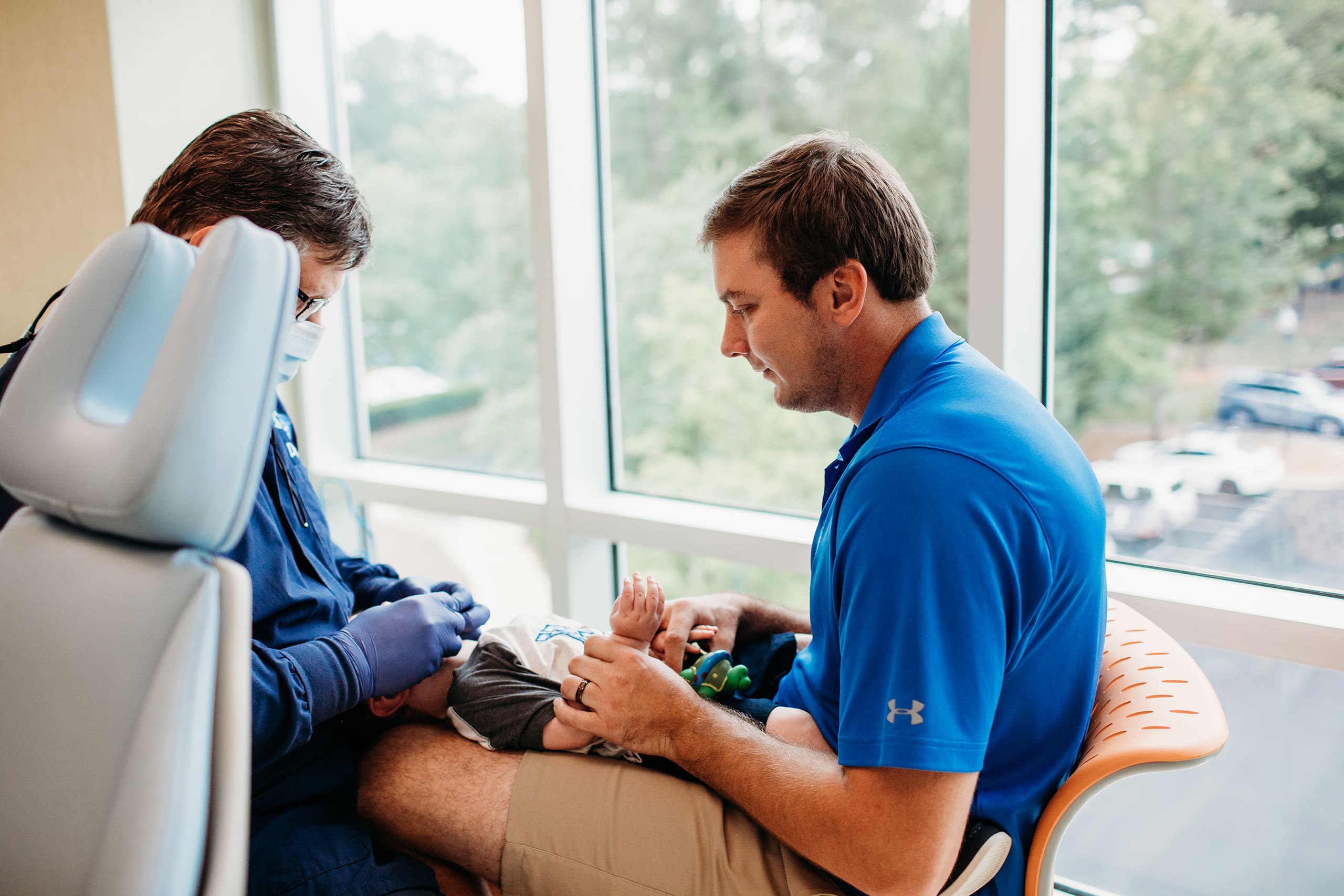
Infant Dental Visits
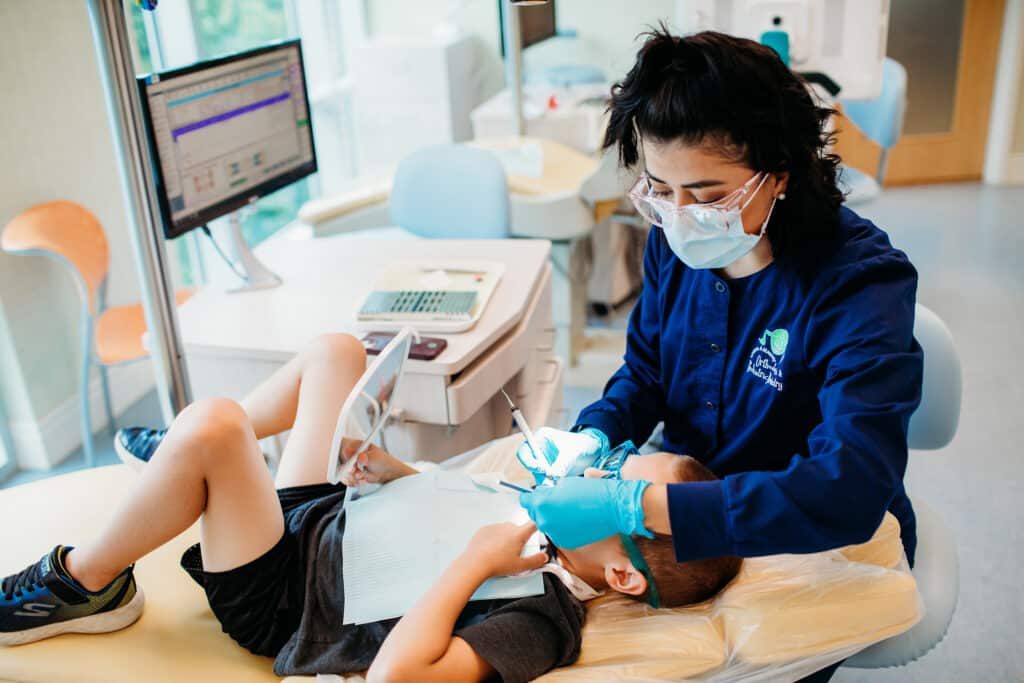
Anticipatory Guidance
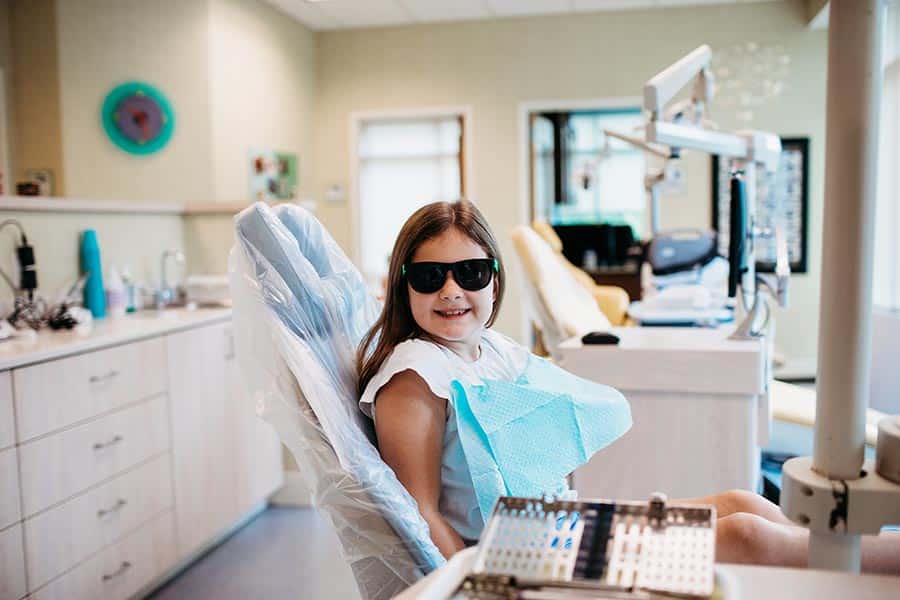
Preventive Dentistry
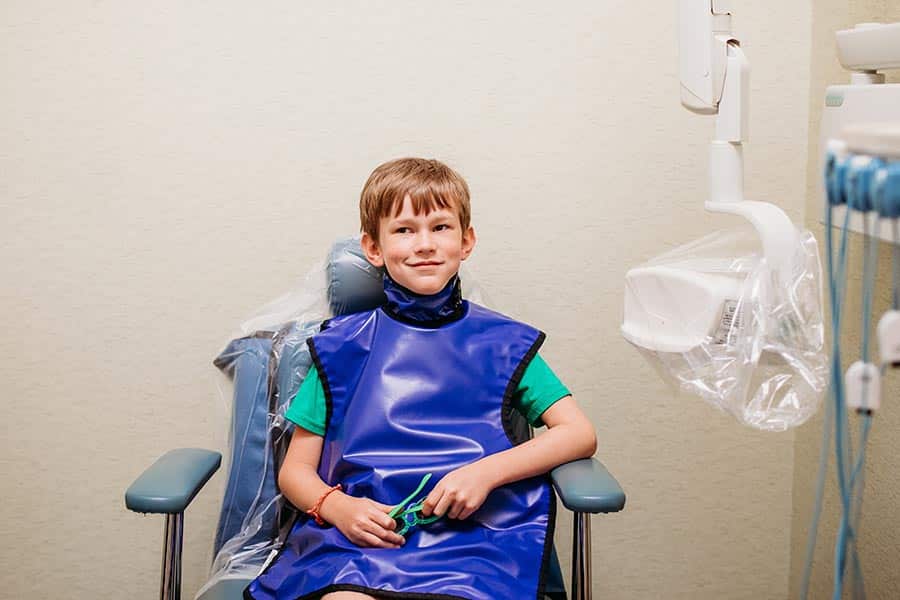
X-Rays & Radiographs

Nutritional Counseling
Receiving nutritional education for children is as important as learning proper brushing and flossing habits. We want all our patients and their families to understand how their nutritional choices affect their teeth and gums. We offer this information in a non-judgmental conversation about best practices for keeping your child’s teeth strong and healthy.
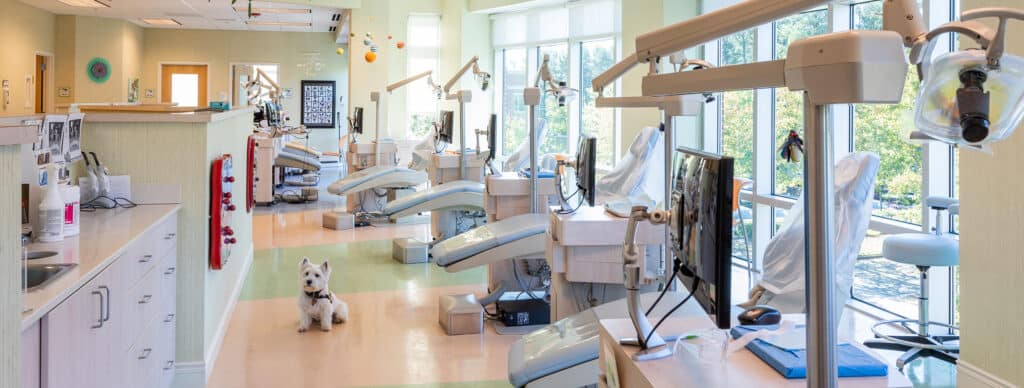
Emergency Pediatric Dentistry
The Benefits of Early Pediatric Dental Visits
It’s never too early to start prioritizing your child’s dental health. Early pediatric dental visits offer a number of significant benefits that lay the groundwork for a lifetime of healthy smiles. By introducing children to the dental office environment at a young age, parents can ensure that their children become more comfortable and familiar with dental care processes. This helps reduce anxiety and fear, making future dental visits less daunting for both the child and the parent.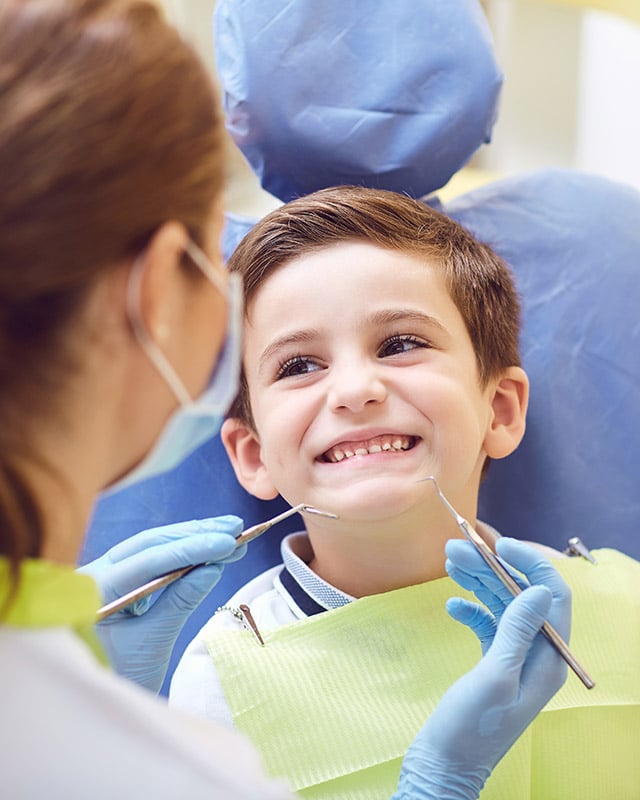
Here are some compelling benefits of early pediatric dental visits:
- Prevention of tooth decay – Early visits allow the dentist to catch and address any signs of tooth decay before they become serious problems.
- Education on proper oral hygiene – Dentists provide invaluable guidance on how to care for your child’s teeth and gums at home.
- Early detection of orthodontic concerns – Regular check-ups help identify any potential issues early, which can be easier and less expensive to address.
- Habituation to dental procedures – Children become accustomed to routine dental procedures and exams, reducing their overall fear and apprehension.
- Dietary advice – Dentists can give practical advice on healthy eating habits that promote strong teeth and gums.
- Establishing a dental home – Finding a consistent dental home early on ensures continuity of care and builds a trusting relationship between the child and the dentist.
Pediatric Dentistry FAQ
Kids Dentist in Chapel Hill, NC
At Clifton & Mauney Orthodontics & Pediatric Dentistry, our mission is to help kids throughout Chapel Hill and the surrounding communities achieve a beautiful, healthy smile through comprehensive dental and orthodontic treatment. While we’re proud of the treatments we provide in our office, we strive to go beyond just treatment and serve as a trusted dental health resource to our patients. If you have questions about you or your child’s dental health, we’ve compiled this FAQ page to help you learn more about maintaining a healthy smile.
Pediatric Dental & Orthodontic FAQ
How should I clean my baby’s teeth?
A toothbrush with soft bristles and a small head, especially one designed for infants, is the best choice for infants. Brushing at least twice a day will remove plaque bacteria that can lead to decay.
At what age should my child have his/her first dental visit?
“First visit by first birthday” is the general rule. To prevent dental problems, your child should see your Chapel Hill pediatric dentist when the first tooth appears. This is usually between 6 and 12 months of age, but certainly no later than his/her first birthday.
Why should my child see a Chapel Hill pediatric dentist instead of our regular family dentist?
Pediatric dentistry is a dental specialty that focuses on the oral health of young people. Following dental school, a pediatric dentist has two to three years additional specialty training in the unique needs of infants, children, and adolescents, including those with special health needs. Ultimately, a pediatric dental specialist is better-suited to ensure your child’s healthy dental development – so we always recommend taking your child to a qualified pediatric dentist.
What is baby bottle tooth decay and how can I prevent it?
Baby bottle tooth decay is a pattern of rapid decay associated with prolonged nursing. It happens when a child goes to sleep while breastfeeding and/or bottle-feeding. During sleep, the flow of saliva is reduced and the natural self-cleansing action of the mouth is diminished. To prevent baby bottle decay, avoid nursing children to sleep or putting anything other than water in their bedtime bottle. Encourage your child to drink from a cup as they approach their first birthday. He/she should be weaned from the bottle at 12-14 months of age.
Can thumbsucking be harmful for my child’s teeth?
Thumb and pacifier-sucking habits that go on for a long period of time can create crowded, crooked teeth or bite problems. If they are still sucking their thumbs or fingers when the permanent teeth arrive, a mouth appliance may be recommended by your Chapel Hill orthodontist. Most children stop these habits on their own.
What are dental sealants and how do they work?
Pediatric dental sealants are clear or shaded coating applied to the teeth to help keep them cavity-free. Sealants fill in the grooved and pitted surfaces of the teeth, which are hard to clean, and shut out food particles that could get caught, causing cavities. Fast and comfortable to apply, sealants can effectively protect teeth for many years.
When should my child start using toothpaste?
You should use fluoridated toothpaste and a soft-bristled toothbrush as soon as you start brushing your child’s teeth. After age 3, parents should closely supervise brushing. Use no more than a pea-sized amount of toothpaste and make sure children do not swallow excess toothpaste.
If my child gets a toothache, what should I do?
To comfort your child, rinse his/her mouth with warm salt water and apply a cold compress or ice wrapped in a cloth to your child’s face if it is swollen. While you should not put heat or aspirin on the sore area, you may give the child acetaminophen for pain. In any case, make an appointment with us as soon as possible.
Is my child getting enough fluoride?
Fluoride has been shown to dramatically decrease a person’s chances of getting cavities by making teeth stronger. Fluoride in tap water is the best and easiest way to get it, but to make sure your child is getting enough fluoride, have your pediatric dentist evaluate the fluoride level of your child’s primary source of water. If your child is not getting enough fluoride internally through water (especially in communities where the water district does not fluoridate the water or if your child drinks bottled water without fluoride), your Chapel Hill kids’ dentist may prescribe fluoride supplements.
How safe are dental X-rays?
With contemporary safeguards, such as lead aprons and high-speed film, the amount of radiation received in a dental X-ray examination is extremely small. Even though there is almost no risk, pediatric dentists are particularly careful to minimize the exposure of child patients to radiation. In fact, dental X-rays represent a far smaller risk than an undetected and untreated dental problem.
My child plays sports. How should I protect my child’s teeth?
A mouthguard should be a top priority on your child’s list of sports equipment. Athletic mouth protectors, or mouthguards, are made of soft plastic and fit comfortably to the shape of the upper teeth. They protect a child’s teeth, lips, cheeks, and gums from sports-related injuries. Any mouthguard works better than no mouthguard, but a custom-fitted mouthguard fitted by your Chapel Hill dentist is your child’s best protection against sports-related injuries.
When do the first teeth start to erupt?
At about 6 months, the two lower front teeth (central incisors) will erupt, followed shortly by the two upper central incisors. The remainder of the baby teeth appear during the next 18 to 24 months but not necessarily in an orderly sequence from front to back. At 2 to 3 years, all 20 primary teeth should be present.
What should I do if my child knocks out a permanent tooth?
First of all, remain calm. If possible, find the tooth and hold it by the crown rather than the root. Replace the tooth in the socket and hold it there with clean gauze or a washcloth. If you can’t put the tooth back in the socket, place the tooth in a clean container with milk or salt water and take your child and the glass immediately to the pediatric dentist. The faster you act, the better your chances of saving the tooth.
How can I help my child through the teething stage?
Sore gums when teeth erupt are part of the normal eruption process. The discomfort is eased for some children by use of a teething biscuit, a piece of toast or a frozen teething ring. Your pharmacy should also have medications that can be rubbed on the gums to reduce the discomfort.
I noticed a space between my child’s two upper front teeth. Is this cause for concern?
Usually, the space will close in the next few years as the other front teeth erupt. One great benefit of our pediatric services is that our orthodontist Dr. Clifton is always on-hand to take a curtesy peak during a regular appointment. If she does see any cause for concern, we’ll schedule a free orthodontic consultation for you to discuss early intervention options such as braces or a clear aligner system like Invisalign.
If my child gets a cavity in a baby tooth, should it still be filled?
Primary, or “baby,” teeth are important for many reasons. Not only do they help children speak clearly and chew naturally, they also aid in forming a path that permanent teeth can follow when they are ready to erupt. Some of them are necessary until a child is 12 years old or longer. Pain, infection of the gums and jaws, impairment of general health and premature loss of teeth are just a few of the problems that can happen when baby teeth are neglected. Also, because tooth decay is really an infection and will spread, decay on baby teeth can cause decay on permanent teeth. Proper care of baby teeth is instrumental in enhancing the health of your child.
What causes tooth decay?
Four things are necessary for cavities to form—a tooth, bacteria, sugars or other carbohydrates and time. Dental plaque is a thin, sticky, colorless deposit of bacteria that constantly forms on everyone’s teeth. When you eat, the sugars in your food cause the bacteria in plaque to produce acids that attack the tooth enamel. With time and repeated acid attacks, the enamel breaks down and a cavity forms.
Contact Your Chapel Hill Pediatric Dentist
We hope you found this page helpful, and if you still have questions about your child’s dental health, we’re always happy to answer them. Feel free to reach out to us at our contact page to ask any questions you may have or to schedule an appointment at our Chapel Hill, NC pediatric dentist’s office. We look forward to hearing from you, and we’re excited to help your child develop a healthy smile.
Why Choose Clifton & Mauney for Pediatric Dental Care?
What makes Clifton & Mauney Orthodontics & Pediatric Dentistry the leading pediatric dental care provider in Chapel Hill, Durham, and Hillsborough? We know that building a strong bond and trust with your child will help set them up for a healthy smile that will last a lifetime.
We love the Chapel Hill community! Find out how we give back to our community!
